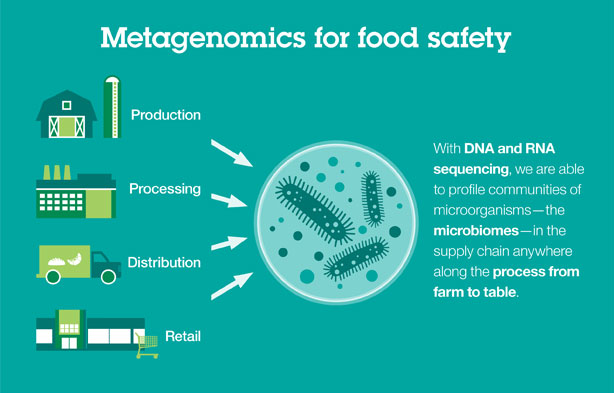Americans consume an estimated 600 pounds of milk and milk-based products annually, according to the USDA. In an effort to minimize the hazards in the milk supply and prevent food fraud, IBM Research and Cornell University are joining forces. Combining next-generation sequencing with bioinformatics, the research project will collect genetic data from the microbiome of raw milk samples in a real-world situation at the Cornell University dairy plant and farm in Ithaca, New York.
Specifically, IBM and Cornell will sequence and analyze the DNA and RNA of food microbiomes, which will serve as a raw milk baseline, to develop tools that monitor raw milk and detect abnormalities that could indicate safety hazards and potential fraud. The data collected may also be used to expand existing bioinformatics analytical tools used by the Consortium for Sequencing the Food Supply Chain, a project that was launched by IBM Research and Mars, Inc. at the beginning of 2015.
“As nature’s most perfect food, milk is an excellent model for studying the genetics of food. As a leader in genomics research, the Department of Food Science expects this research collaboration with IBM will lead to exciting opportunities to apply findings to multiple food products in locations worldwide.” – Martin Wiedmann, Gellert Family Professor in Food Safety, Cornell University.
“Characterizing what is ‘normal’ for a food ingredient can better allow the observation of when something goes awry,” said Geraud Dubois, director of the Consortium for Sequencing the Food Supply Chain, IBM Research – Almaden, in a press release. “Detecting unknown anomalies is a challenge in food safety and serious repercussions may arise due to contaminants that may never have been seen in the food supply chain before.”
Cornell University is the first academic institution to join the Consortium for Sequencing the Food Supply Chain.



